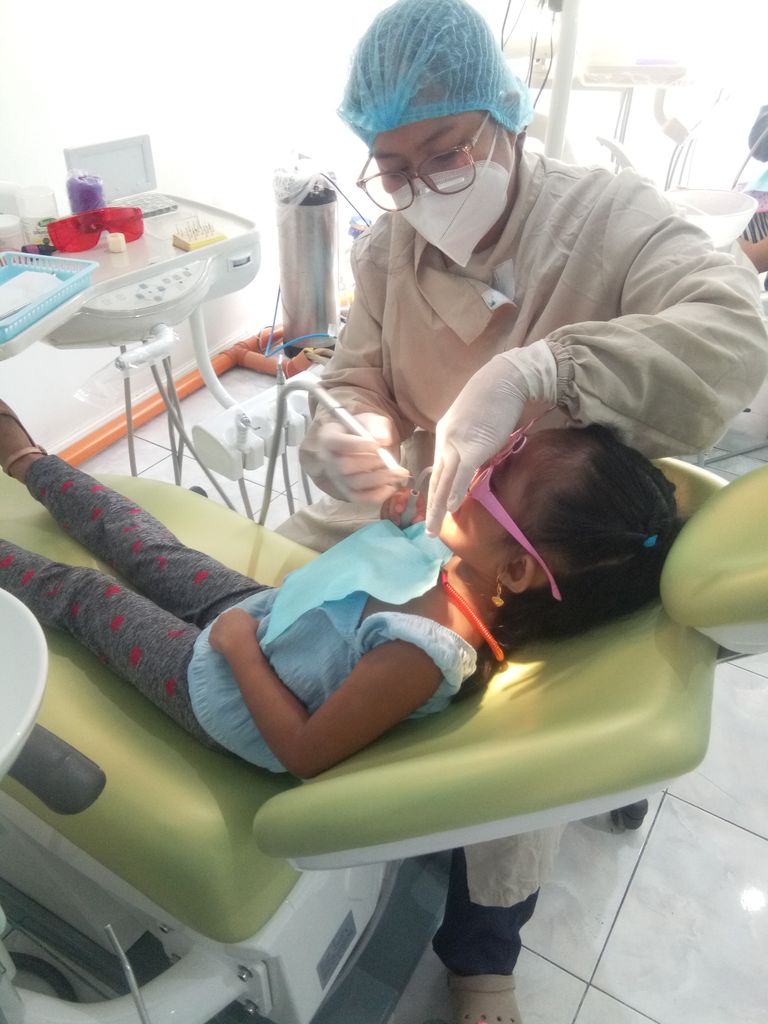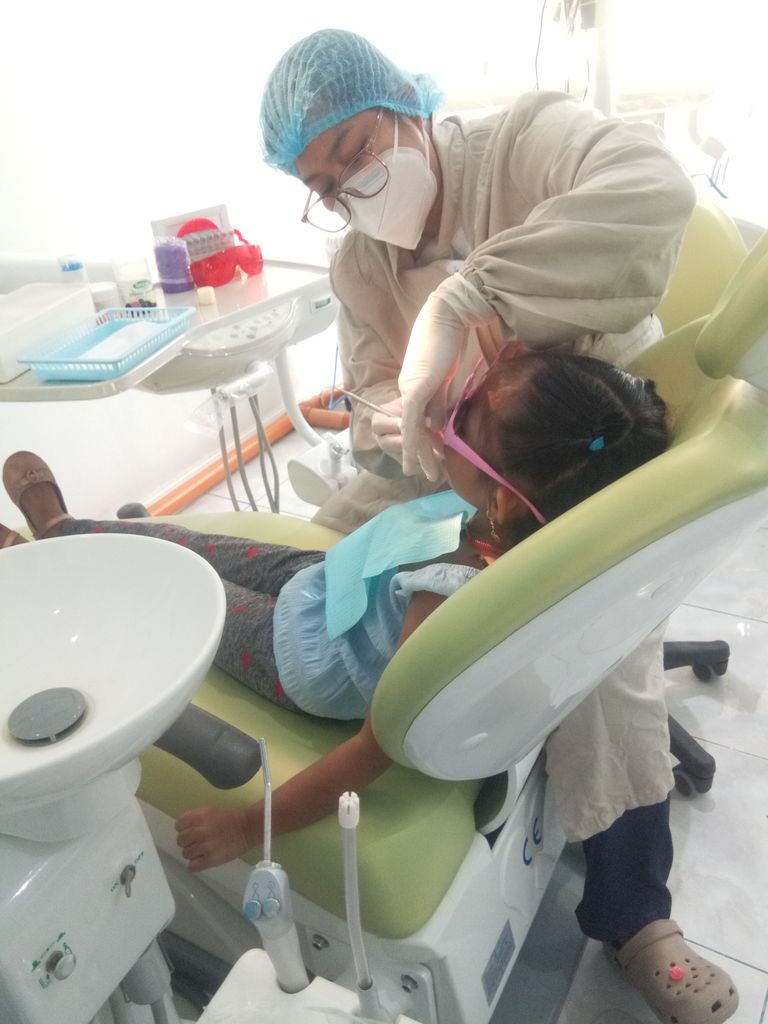No more pain🦷
My daughter was suffering a toothache last week..I saw in her wisdom tooth that there's a small hole in the center.. So I decided to take her to the dentist so that we know what's the reason of her tootaches!

•We visit the Bacatan- Johnston Dental Clinic! It so good because its very near from our place I think it's just 5-10 mins. walk!
•Their Clinic is nice and clean..their doctors are very generous and kind..they have lots of services
for a very affordable price!

*Toothache, also known as dental pain or tooth pain, is pain in the teeth or their supporting structures, caused by dental diseases or pain referred to the teeth by non-dental diseases. When severe it may impact sleep, eating, and other daily activities.
*Common causes include inflammation of the pulp, (usually in response to tooth decay, dental trauma, or other factors), dentin hypersensitivity, apical periodontitis (inflammation of the periodontal ligament and alveolar bone around the root apex), dental abscesses (localized collections of pus), alveolar osteitis ("dry socket", a possible complication of tooth extraction), acute necrotizing ulcerative gingivitis (a gum infection), and temporomandibular disorder.
Pulpitis is reversible when the pain is mild to moderate and lasts for a short time after a stimulus (for instance cold); or irreversible when the pain is severe, spontaneous, and lasts a long time after a stimulus. Left untreated, pulpitis may become irreversible, then progress to pulp necrosis (death of the pulp) and apical periodontitis. Abscesses usually cause throbbing pain. The apical abscess usually occurs after pulp necrosis, the pericoronal abscess is usually associated with acute pericoronitis of a lower wisdom tooth, and periodontal abscesses usually represent a complication of chronic periodontitis (gum disease). Less commonly, non-dental conditions can cause toothache, such as maxillary sinusitis, which can cause pain in the upper back teeth, or angina pectoris, which can cause pain in the lower teeth. Correct diagnosis can sometimes be challenging.
Proper oral hygiene helps to prevent toothache by preventing dental disease. The treatment of a toothache depends upon the exact cause, and may involve a filling, root canal treatment, extraction, drainage of pus, or other remedial action. The relief of toothache is considered one of the main responsibilities of dentists.
Toothache is the most common type of pain in the mouth or face.
* 125–135 It is one of the most common reasons for emergency dental appointments. In 2013, 223 million cases of tooth pain occurred as a result of dental caries in permanent teeth and 53 million cases occurred in baby teeth.
Historically, the demand for treatment of toothache is thought to have led to the emergence of dental surgery as the first specialty of medicine.
*CAUSES:
Toothache may be caused by dental (odontogenic) conditions (such as those involving the dentin-pulp complex or periodontium), or by non-dental (non-odontogenic) conditions (such as maxillary sinusitis or angina pectoris). There are many possible non-dental causes, but the vast majority of toothache is dental in origin.
Both the pulp and periodontal ligament have nociceptors (pain receptors), but the pulp lacks proprioceptors (motion or position receptors) and mechanoreceptors (mechanical pressure receptors)Consequently, pain originating from the dentin-pulp complex tends to be poorly localized, whereas pain from the periodontal ligament will typically be well localized..Although not always.
*Have A Wonderful Saturday To All Of Us!🤗😍
THANK YOU FOR ALWAYS SUPPORTING MY BLOGS!💖🥰